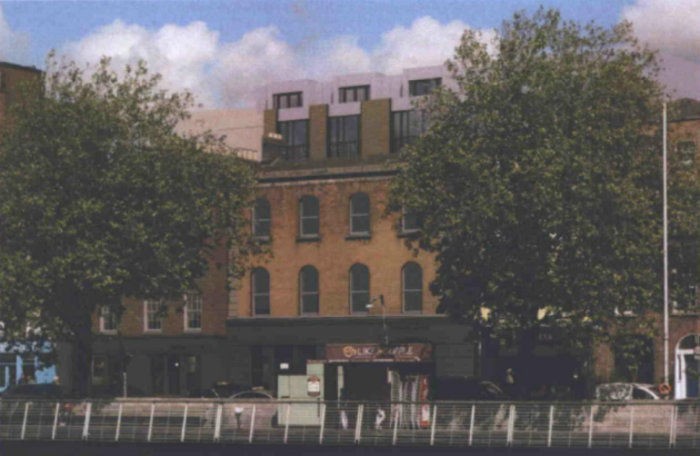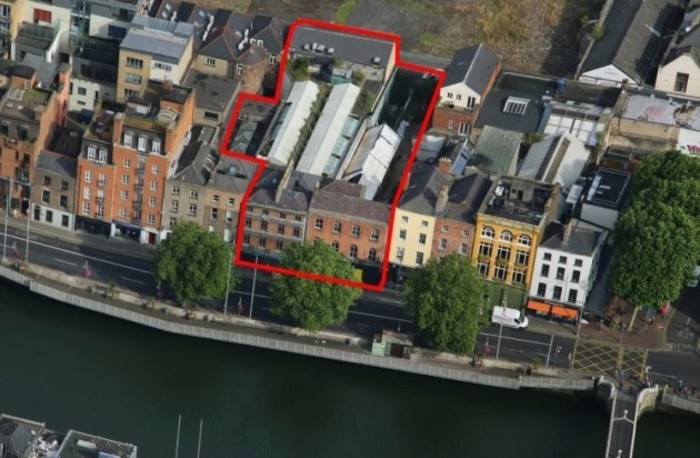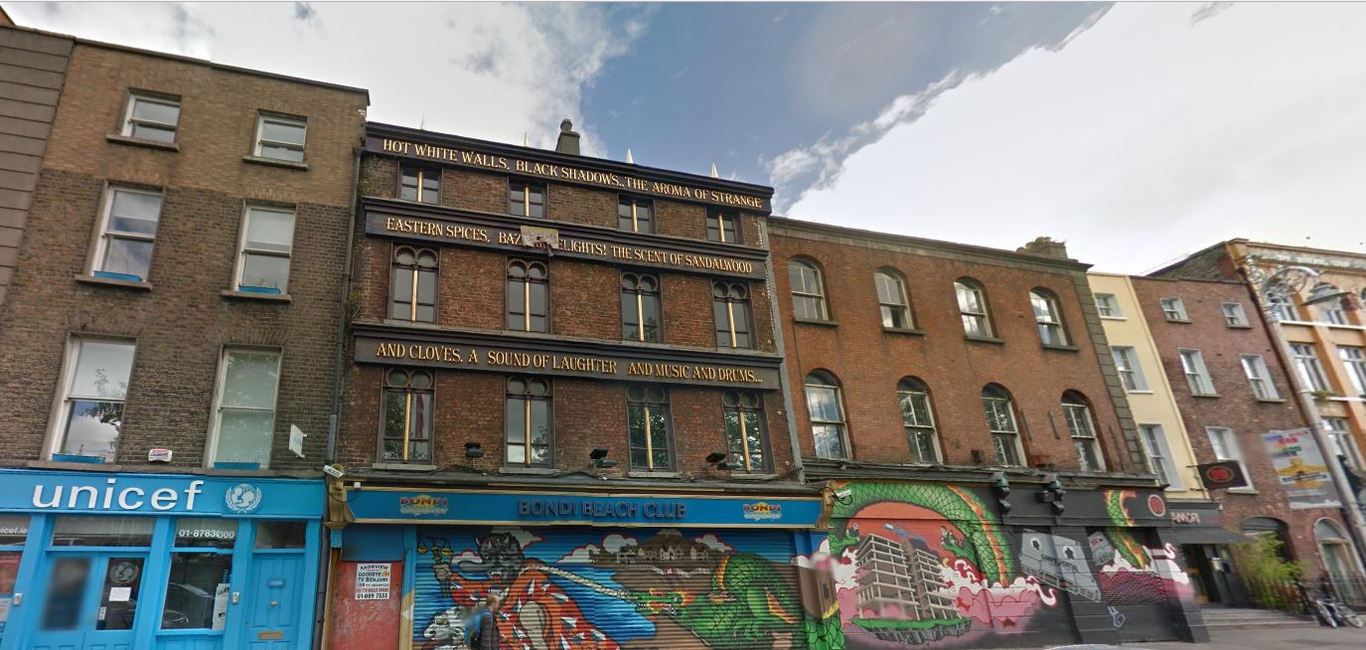After years lying vacant, the former Bondi Beach Club site is being turned into a €45m aparthotel
The new development by Lockeliving will contain 165 bedrooms.
PLANNING PERMISSION HAS been granted by Dublin council to develop a new €45 million aparthotel on the former site of Bondi Beach Club and Zanzibar Hotel.
Located near the Ha’penny Bridge, the site – which was once part of the ex-Capital Bars Group – has been vacant for a number of years.
Earlier this year, the site was purchased by aparthotel group Lockeliving for €10 million and it announced plans to develop a new €45 million aparthotel on the site.
Last month, Targeted Investment Opportunities ICAV – a US investment group linked to Oaktree Capital Management – lodged plans to redevelop the site on Lower Ormond Quay and build a 165-room aparthotel.
The development of the hotel – which will be 8,565 sq m in size – will involve the demolition of some buildings on Ormond Quay and premises to the rear that stretch back to Great Strand Street.
The new six- and seven-storey buildings will contain a gym, café, bar, restaurant and meeting rooms. The development will also incorporate a coffee kiosk on Ormond Quay.
The portion of the existing building which faces onto Ormond Quay is a protected structure. This part of the development will not be demolished and will be separated from the new buildings by an internal courtyard.
Some parts of the road-facing structure will be upgraded during the development, including the windows and shop front.
 An artist's impression of the new development
An artist's impression of the new development
Part of the Saco group, the Lockeliving aparthotel brand opened its first property in East London in October last year.
The London property, dubbed Leman Locke, is described as a “design-led” aparthotel for the “modern traveller”.
When Leman Locke was launched, Saco said further properties would be announced across the UK and Europe during 2017.
Complaints
A number of complaints about the development were lodged by owners of office spaces adjacent to the site.
Conservation group An Taisce also weighed in and said the new hotel would represent “gross overdevelopment” of the area and the “cliff-like” structure would hamper development on an empty site on the opposite side of Great Strand Street.
A comment on the application by the Department of Culture and Heritage welcomed the decision to develop the site, but said the size of the aparthotel needed to be scaled down so it did not overshadow nearby buildings.
 An aerial shot of the site
An aerial shot of the site
This new hotel development will join a long list of similar projects under construction in Dublin at the moment. More than 3,000 new rooms are expected to come on stream in the Irish capital by the end of 2019.
A study commissioned by Fáilte Ireland has shown that Dublin is suffering from a shortage of available hotel accommodation, which has stifled growth in the capital’s tourism sector.
Earlier this year, the state body wrote a letter to Dublin council and urged it to grant planning permission to a new hotel development on the Andrews Lane Theatre site.
It highlighted that Dublin was experiencing an “unprecedented hotel occupancy rate” and that the development would help address the shortage of accommodation.





